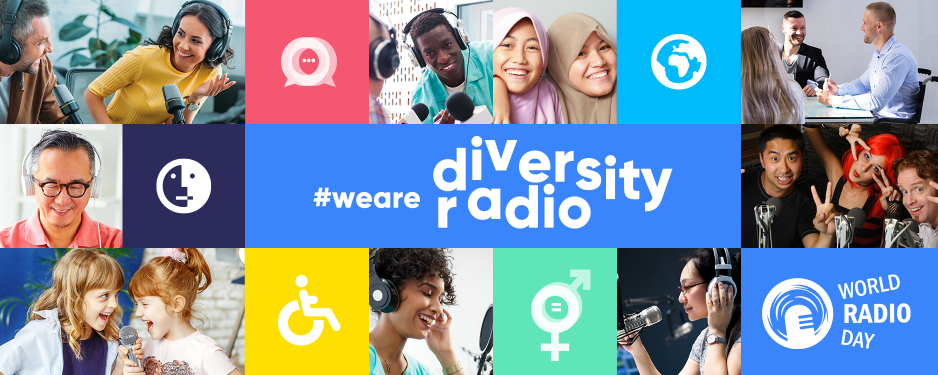- Login to ASPnet | Ghana Commission for UNESCO | Government Agency Responsible for the coordination of Ghana's contributions to and presence at UNESCO
World Radio Day

Description:
Radio is a powerful medium for celebrating humanity in all its diversity and constitutes a platform for democratic discourse. At the global level, radio remains the most widely consumed medium. This unique ability to reach out the widest audience means radio can shape a society’s experience of diversity, stand as an arena for all voices to speak out, be represented and heard. Radio stations should serve diverse communities, offering a wide variety of programs, viewpoints and content, and reflect the diversity of audiences in their organizations and operations.
Radio is uniquely positioned to bring communities together and foster positive dialogue for change. By listening to its audiences and responding to their needs, radio services provide the diversity of views and voices needed to address the challenges we all face.
For World Radio Day 2020, UNESCO calls on radio stations to uphold diversity, both in their newsroom and on the airwaves.
Message from the Director-General
“On this World Day, we celebrate the power of radio to reflect and promote diversity in all its forms”.
— Audrey Azoulay, Director-General of UNESCO, on the occasion of World Radio Day
Download the written complete message :
English | Français | Español | Русский | العربية | 中文
Broadcast the audio message in English:
1. Diversity in the radio landscape
Diversity of voices and opinions in radio relies first on the degree of media concentration and the coexistence of different types of stations with a mix of public, private and community broadcasters. The development of policy environments conducive to transparency and diversity of media ownership is the keystone to a pluralistic, inclusive and democratic radio sector. Technological advances are also participating to diversify the radio sector – for example with Digital Audio Broadcasting (DAB) or the increasing demand for podcasting among the younger generation.
2. Diversity in the newsroom
Through equal opportunity and fair treatment policies, radio stations could gain multi-cultural teams that bring along different perspectives on issues, opinions and stories, thus enhancing their credibility vis-à-vis listeners. A diverse and representative radio workforce is not only important for countering discrimination and ensuring gender representation, it is crucial for creativity and relevance of content. It thus safeguards editorial independence.


3. Diversity on the airwaves
Through diverse channels of transmission, types of editorial content1, programming and topics, radio reaches the widest audience globally and opens up a multitude of spaces for democratic debate on an infinity of subjects. Radio stations can offer a wide array of shows and programmes – from reportages and documentaries to talk shows and podcasts, there is something for each of us. Within the programme, diversity in the choice of angles, languages, music, invited guests and sources can further portray, engage and reflect the diversity of humanity, thus fostering tolerance, inclusion and solidarity. It is essential for media pluralism, and broadens journalists’ and programme makers’ creativity.
